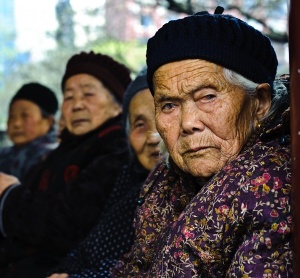-
Advocacy Theme
-
Tags
- Abortion
- Adoption
- Caregiving
- CEDAW
- Disability
- Domestic Violence
- Domestic Workers
- Harassment
- Healthcare
- Housing
- International/Regional Work
- Maintenance
- Media
- Migrant Spouses
- Migrant Workers
- Muslim Law
- National budget
- Parental Leave
- Parenthood
- Polygamy
- Population
- Race and religion
- Sexual Violence
- Sexuality Education
- Single Parents
- Social Support
- Sterilisation
- Women's Charter
Experiences of ageing among women in Singapore
September 30th, 2013 | Letters and op-eds, News, Older People and Caregiving, Poverty and Inequality, Views
by Ranjana Raghunathan and Tan Jian Xiang
This year’s theme for International Day of Older Persons (Oct 1) is: The Future We Want: What Older Persons Are Saying.
The Association of Women for Action and Research (AWARE) held a focus group discussion at the Society for WINGS (Women’s Initiative for Ageing Successfully) in June with seven women aged 55 and above, to learn about their experiences of growing old.
Five were working as cleaners, and two were unemployed for health reasons, fitting the profile described in Tsao Foundation’s 2011 report, that many older women who are employed tend to be cleaners and labourers.
Getting by on their incomes was a challenge for these women, but with little family support, their jobs remained their main source of livelihood. They could only get part-time work and had few alternatives to meet the rising cost of living, except cutting down on everyday needs.
They wondered how long they could keep working and what to do should their health fail. They were confused over public schemes to assist the elderly. Most did not know about ComCare or the Community Health Assist Scheme.
They felt they would need to know English or use the Internet to get the information. They said that sometimes even the social workers they encounter do not understand all the details of such schemes.
None knew about the minimum sum required for their Central Provident Fund (CPF) accounts. When informed of this, a few became concerned. They had been contemplating selling their flats to pay for their livelihood needs, but the proceeds would then go into their CPF.
Recent policy changes highlight the need to provide effective healthcare at rates affordable to the aged and the nation at large. But Singapore does not yet have a well-developed support system for women in old age, who face a relatively high risk of chronic illnesses, due to longer life expectancy and lower access to appropriate healthcare.
Two-thirds of national healthcare spending was paid out-of-pocket in 2011, not only by patients but also their children and other relatives, who thereby have reduced resources for themselves. Out-of-pocket healthcare costs are still a hurdle for the underprivileged and the elderly.
Lifetime differences in income produce different healthcare outcomes for women and men. Tsao Foundation’s 2011 report noted that 75 per cent of older women and 43 per cent of older men depended on their children and grandchildren.
CPF is the first source of financial support for only 2 per cent of older women and 5 per cent of older men with children. Without better social support, the caregiving burden falls disproportionately on women, leaving them without a retirement safety net.

The report also shows that older women are more likely than older men to have higher levels of depression requiring clinical attention.
The World Health Organization ranks Singapore fourth for life expectancy, with women expected to live to 85 and men to 80. In this context, low-income women should experience more positive ageing, with less anxiety about their future.
Ranjana Raghunathan and Tan Jian Xiang are part of the Research & Advocacy Department at AWARE. This article was originally published in TODAY Voices on 30 September 2013. You can read the original version here.



